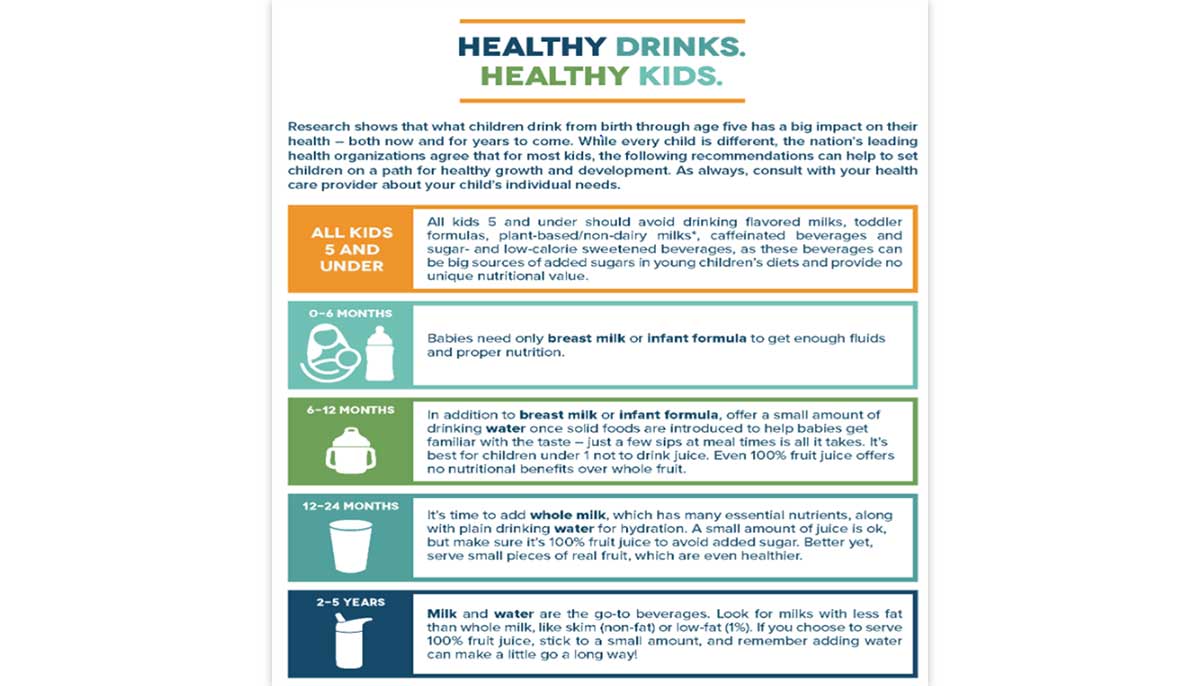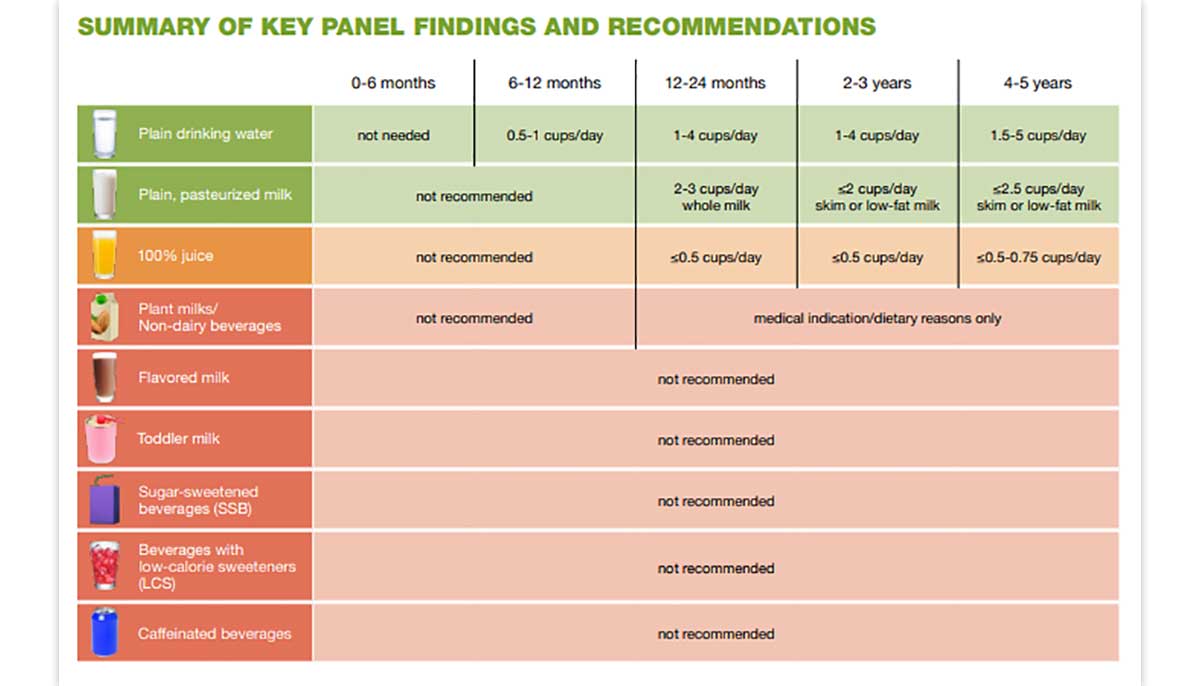Leading Health Organizations Issue Consensus Statement Providing New Guidelines on Healthy Beverage Options for Young Children
By: Ashley Rosales, RDN
Early childhood is a key opportunity to establish healthy dietary patterns, which are important for supporting optimal growth and development as well as preventing diet-related chronic diseases. Research shows that what children drink from birth through age 5 can have a big impact on their health since beverages contribute significantly to total dietary intake during this critical period. However, with the rapidly expanding beverage options now available in the marketplace, parents and caregivers can be confused about which drinks are healthy and which should be avoided.
Many authoritative bodies have issued guidance and recommendations for healthy beverage intake, but gaps have existed in the types of beverages discussed. Given the importance of beverage consumption in early childhood and the need for comprehensive and consistent evidence-based recommendations, in September 2019, Healthy Eating Research, a group under the Robert Wood Johnson Foundation, released a consensus statement recommending the best beverages for children ages 0–5; this statement was developed in collaboration with key national health and wellness organizations, including the Academy of Nutrition and Dietetics, the American Academy of Pediatrics, the American Academy of Pediatric Dentistry and the American Heart Association. The report, Healthy Beverage Consumption in Early Childhood: Recommendations from Key National Health and Nutrition Organizations, provides comprehensive recommendations for beverage consumption consistent with a healthy diet for children from birth to age 5. This report will likely be referenced by key public health stakeholders in policy development and advocacy, especially since it coincides with the development of the 2020–2025 Dietary Guidelines for Americans, which for the first time will provide guidance for infants and toddlers from birth to 24 months, as well as women who are pregnant.


The full guidelines and accompanying technical report can be found at healthydrinkshealthykids.org. The site also offers parent-focused one-minute video resources, available in English and Spanish, covering the different topics included in the guidelines and useful tips on how to make healthy changes. Additional materials and resources, including shareable infographics and educational handouts, are also available.

Ashley Rosales, RDN
Ashley Rosales, RDN
Ashley, Nutrition Science Officer, is a practicing registered dietitian nutritionist with more than a decade of experience.
In today's society, it's vital to engage teenagers in experiential nutrition education to guide them toward making nutritious food choices.

The Let’s Eat Healthy Community Grant program provides community health organizations funding to enhance programs within their communities.

Subscribe to our blog to stay up to date on the latest news, products, and more.